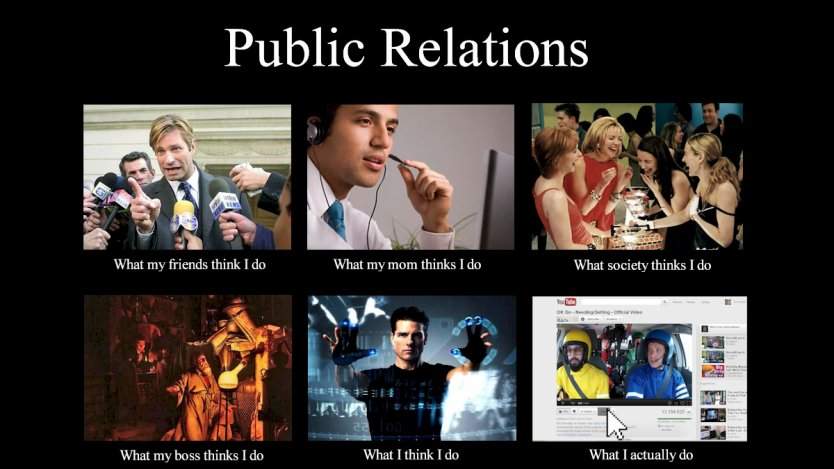Not many people can say that they love what they do. Well, I really love my work.
Having landed a gig with one of the hottest PR firms in Calgary, worked with some of Alberta’s best chefs and a San Pellegrino-winning restaurant, I’d like to think the restaurant industry chose me and that I was destined to work with food in some capacity.
From spending most of my childhood in my dad’s restaurant to bartending as I travelled the world, all my past experiences guided me to food and hospitality public relations, my two strongest passions.
So what is PR, and why do restaurants and chefs need it?
Public relations has locked down an increasingly important role in the restaurant industry for its ability to promote initiatives and individuals in a strategic manner. There are few restaurateurs who would dare to open a restaurant, especially in a big city where the market is saturated with new openings, without some form of PR support.
We are storytellers. We build awareness, recommend editorial coverage, and build relationships and goodwill for our clients. We work with the media to inform the public of an organization's mission, policies and practices in a positive, consistent and, most of all, credible manner in order to maximize truthful and positive media coverage in the media without traditional advertising. If you’ve read about a restaurant a newspaper or blog, heard something on the radio, or saw a cooking segment on TV, it’s most likely the direct result of media relations.
A lot goes on before the schmoozing part of our jobs. It would be far more convenient if I could just tell people that I was an accountant, and they would have a general idea of what I do all day.
On a typical day, you’ll likely find me at a TV station at 5:30 a.m. for the morning show I booked with the chef. By this point, I would have already corresponded repeatedly with the producer and planned the segment down to the last detail: What do we want to communicate to the audience? What will create a buzz? What meal can reflect the chef’s signature style, but viewers can also make at home? What can be made in a four-minute live segment? Regardless of how prepared I am, I rarely sleep the night before. After the segment, I sit down with my chef to discuss what went well, and what we can improve on for next time.
Then, it’s back to the office to work on the media kit that I’ve been building for the launch of a new initiative, whether it’s a collaborative dinner or a new rooftop garden. Eighty per cent of my time is spent writing: press releases, speaking notes, media advisories, web content, key messages, media kits, biographies, social media strategies, and story ideas, among other documents.
Frantic calls about unfavourable reviews on blogs interrupt the flow of creative juices. Media coverage for restaurants is critical by nature. We don’t just hope for a story, we hope that our critics like the style of food, the atmosphere, the staff, other clientele and the location. I remind them to focus on the positive aspects of the article. The reality is that you just can’t please everyone. Sometimes, it’s worse. Much worse. A crisis like last year’s horrible flood in Calgary left dozens of restaurants in feet of water, with no power, a catastrophic loss of inventory, and thousands of staff out of work. In those times, we would immediately gather the team to come up with a plan of attack, drafting and sending communications to internal and external audiences to get out the first communications to anyone affected.
Suddenly, it’s past 4 p.m. To the average person, the day would be almost over, but in PR, there is always a networking event, media event, or speaking opportunity to attend in the evenings.
The Bigger Picture
Much like working the line, doing PR for this crazy industry is fast-paced, challenging, exhilarating, and rewarding. It gave me the opportunity to be a part of a much bigger movement.
The food and restaurant industry in Alberta is not what it used to be. Travellers and locals are no longer satisfied with just steak and potatoes. They now revel in a sophisticated, contemporary and innovative food scene. I am proud to have played an itty-bitty role in enhancing Calgary’s diverse food scene and have helped raise the city’s gastronomic profile in Canada by securing national and international media coverage.
What I’ve learned
Work with your client, not against them
PR is a collaborative effort where the best results come from working together as a team.
More than just PR
A PR practitioner's role is ever evolving, and I’ve played the roles of therapist, food stylist, make-up artist, hand holder, friend, consultant, operations manager, fish tank polisher, stunt double for TV segments, sous chef at early morning breakfast shows, even dishwasher.
Chefs are not hard to work with
You hear rumblings of chefs and their wild tempers, and Gordon Ramsay's rants certainly don't help. Perhaps times have changed, but I’ve only ever worked with one chef who was difficult, the rest were incredibly gracious, accommodating and supportive, many of whom I can now call friends.
Chefs are hard to get a hold of
Chefs don’t work in an office all day, refreshing their emails every 10 minutes. PR practitioners have to go in with the understanding that chefs won’t be able to flip information or respond immediately; they’re kind of busy, you know, making my lunch. For the most part, food media are incredibly understanding of chefs' time constraints and know to work around lunch and dinner rush.
Chefs can go with the flow
Some are perfectionists, some maybe even a little controlling, but who wouldn’t be in order to ensure they’re putting out their very best product? Despite those traits, I’ve learned that chefs are quick to adapt and can easily go with the flow. (Can we say last minute morning show opportunity?) They work in a high stress environment, day in and day out, and can take roadblocks in stride.
You’re at your clients' beck and call, and vice versa
Some owners or chefs call at all hours of the night, weekends, and holidays. Guess what? They don’t have regular hours, so neither do I. Anyone who thinks they’re going into PR for a steady nine-to-five job is in for a very rude awakening. On the flip side, if I receive a last minute media request, I’m calling them no matter what time it is to confirm availability.
And then there are the perks...
Bless chef Kyle Groves from Catch & The Oyster Bar. I can’t count the amount of times he had a glass of prosecco waiting for me (or espresso at 5 a.m.)













